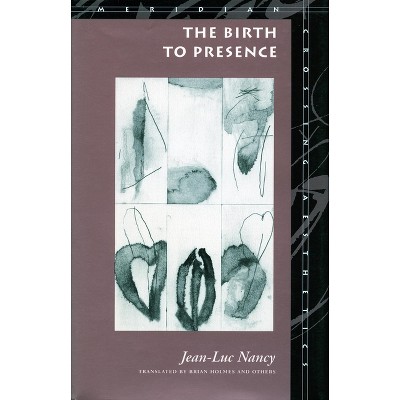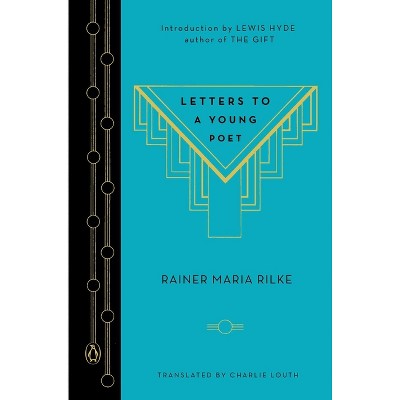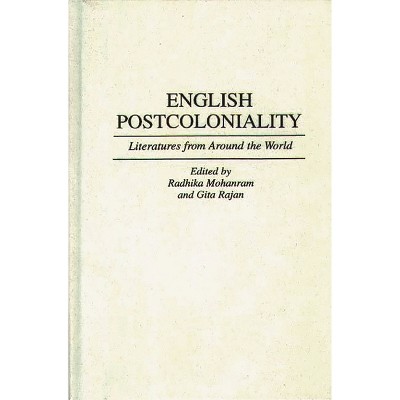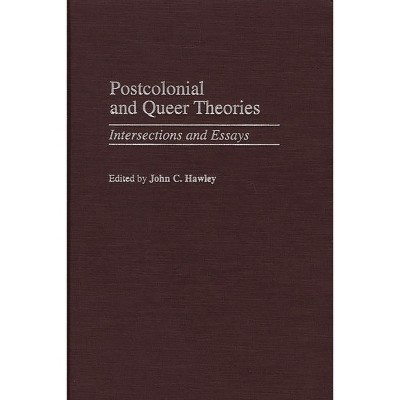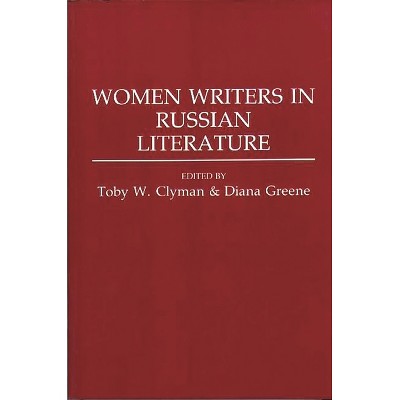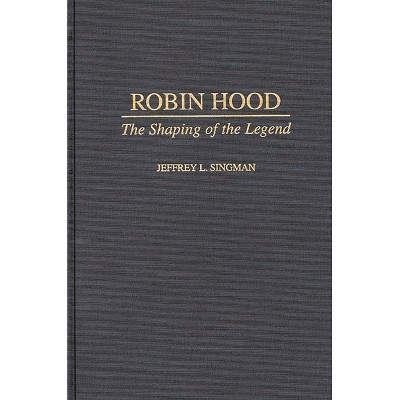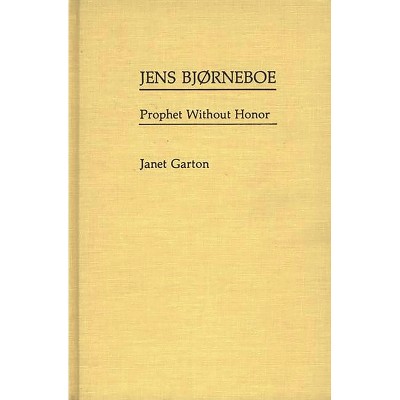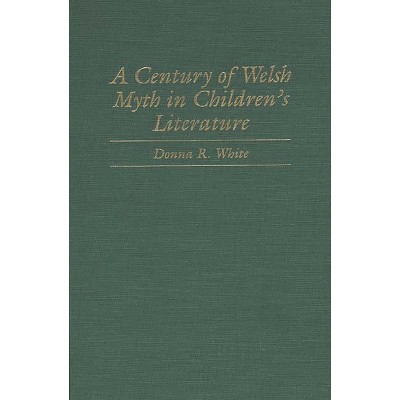Sponsored

African-British Writings in the Eighteenth Century - (Contributions to the Study of World Literature) by Helena Woodard (Hardcover)
In Stock
Sponsored
About this item
Highlights
- The eighteenth century was a time of great cultural change in Britain.
- About the Author: HELENA WOODARD is Associate Professor of English at the University of Texas at Austin, where she specializes in eighteenth-century British literature and culture, and in African American literature.
- 208 Pages
- Literary Criticism, European
- Series Name: Contributions to the Study of World Literature
Description
About the Book
The eighteenth century was a time of great cultural change in Britain. It was a period marked by expeditions to the New World, Africa, and the Orient, and these voyages were reflected in the travel literature of the era. It was also a period in which seventeenth-century empiricism and the scientific method became dominant, and in which society became increasingly secular. Fundamental to the eighteenth-century worldview was the notion of the Great Chain of Being, in which all creatures and their Creator stood in a hierarchical relationship with one another. The years from 1660 to 1833 witnessed both Britain's participation in slavery and the appropriation of the Great Chain of Being by social anthropologists and political leaders. With the rise of the slave trade, blacks were brought to Britain against their will, where they were enslaved. At the same time, intellectuals of the period tried to place these slaves within the hierarchical frame provided by the Great Chain of Being.
The presence of slavery in Britain aroused much debate among blacks and whites alike, and the literature of the eighteenth century reflects that debate. This book examines representations of blacks in eighteenth-century British literature to illuminate the discussions about race during that period. The volume begins with a discussion of Alexander Pope's popularization of the Great Chain of Being in his Essay on Man, which argued the universal ranking of humanity and which provided an intellectual foundation for slavery. It then examines the works of several white canonical writers, including Defoe, Addison and Steele, Swift, and Sterne, to see how blacks are portrayed in their works. The volume also examines works by African-British writers, such as James Albert Ukawsaw Gronniosaw and Quobna Ottobah Cugoano, who expose exclusionary practices among some theologians; Ignatius Sancho, whose Letters show how slaves were taught to be grateful, and how those lacking gratitude were considered inhuman; and Olaudah Equiano, who shows how racial hierarchies function as a literary trope, particularly in travel literature. The final chapter, on The History of Mary Prince, examines the interaction of race and gender.
Book Synopsis
The eighteenth century was a time of great cultural change in Britain. It was a period marked by expeditions to the New World, Africa, and the Orient, and these voyages were reflected in the travel literature of the era. It was also a period in which seventeenth-century empiricism and the scientific method became dominant, and in which society became increasingly secular. Fundamental to the eighteenth-century worldview was the notion of the Great Chain of Being, in which all creatures and their Creator stood in a hierarchical relationship with one another. The years from 1660 to 1833 witnessed both Britain's participation in slavery and the appropriation of the Great Chain of Being by social anthropologists and political leaders. With the rise of the slave trade, blacks were brought to Britain against their will, where they were enslaved. At the same time, intellectuals of the period tried to place these slaves within the hierarchical frame provided by the Great Chain of Being.
The presence of slavery in Britain aroused much debate among blacks and whites alike, and the literature of the eighteenth century reflects that debate. This book examines representations of blacks in eighteenth-century British literature to illuminate the discussions about race during that period. The volume begins with a discussion of Alexander Pope's popularization of the Great Chain of Being in his Essay on Man, which argued the universal ranking of humanity and which provided an intellectual foundation for slavery. It then examines the works of several white canonical writers, including Defoe, Addison and Steele, Swift, and Sterne, to see how blacks are portrayed in their works. The volume also examines works by African-British writers, such as James Albert Ukawsaw Gronniosaw and Quobna Ottobah Cugoano, who expose exclusionary practices among some theologians; Ignatius Sancho, whose Letters show how slaves were taught to be grateful, and how those lacking gratitude were considered inhuman; and Olaudah Equiano, who shows how racial hierarchies function as a literary trope, particularly in travel literature. The final chapter, on The History of Mary Prince, examines the interaction of race and gender.Review Quotes
?[T]his book will be valuable as a point of entry to the African-British writers of the Enlightenment, writers whose position gave them a unique vantage of point for offering a critique of Enlightenment.?-Studies in English Literature
?This dual goal of exploring the discourse on race of an entire century and of exploring how selected texts participate in that discourse on race is an ambitious one, but it is one that Woodward...meets admirably....African-British Writings in the Eighteenth Century is a compelling and convincing examination of the writings of emancipated Africans....There is a great deal of interest in this book, whether for those interested in development of race as a discourse, for those interested in in the early writings of Africans living in Europe, for those interested in slave-narratives, or those interested in readings of canonical English texts in light of the realities of racism and slavery.?-H-NET
?Woodard provides a lucid, learned, sensible introduction to the intersection between the traditional canon and African British writing. Moving in her first chapter from a brief discussion of Enlightenment theories of race to Pope and the Great Chain of Being, Woodard establishes some important intellectual contexts for the African British writers who afterward broke into print and established what Toni Morrison would call a black presence in the English literary marketplace.... And an introductory book is exactly right for this emerging field at this time. Woodward deftly weaves certain concepts from postcolonial theory with insights from scholarship on African American literature and the most sophisticated theories of race. The relevant and comprehensive critical, historical, and theoretical material included in substantial footnotes and bibliography is invaluable.?-Choice
"ÝT¨his book will be valuable as a point of entry to the African-British writers of the Enlightenment, writers whose position gave them a unique vantage of point for offering a critique of Enlightenment."-Studies in English Literature
"[T]his book will be valuable as a point of entry to the African-British writers of the Enlightenment, writers whose position gave them a unique vantage of point for offering a critique of Enlightenment."-Studies in English Literature
"This dual goal of exploring the discourse on race of an entire century and of exploring how selected texts participate in that discourse on race is an ambitious one, but it is one that Woodward...meets admirably....African-British Writings in the Eighteenth Century is a compelling and convincing examination of the writings of emancipated Africans....There is a great deal of interest in this book, whether for those interested in development of race as a discourse, for those interested in in the early writings of Africans living in Europe, for those interested in slave-narratives, or those interested in readings of canonical English texts in light of the realities of racism and slavery."-H-NET
"Woodard provides a lucid, learned, sensible introduction to the intersection between the traditional canon and African British writing. Moving in her first chapter from a brief discussion of Enlightenment theories of race to Pope and the Great Chain of Being, Woodard establishes some important intellectual contexts for the African British writers who afterward broke into print and established what Toni Morrison would call a black presence in the English literary marketplace.... And an introductory book is exactly right for this emerging field at this time. Woodward deftly weaves certain concepts from postcolonial theory with insights from scholarship on African American literature and the most sophisticated theories of race. The relevant and comprehensive critical, historical, and theoretical material included in substantial footnotes and bibliography is invaluable."-Choice
About the Author
HELENA WOODARD is Associate Professor of English at the University of Texas at Austin, where she specializes in eighteenth-century British literature and culture, and in African American literature.

